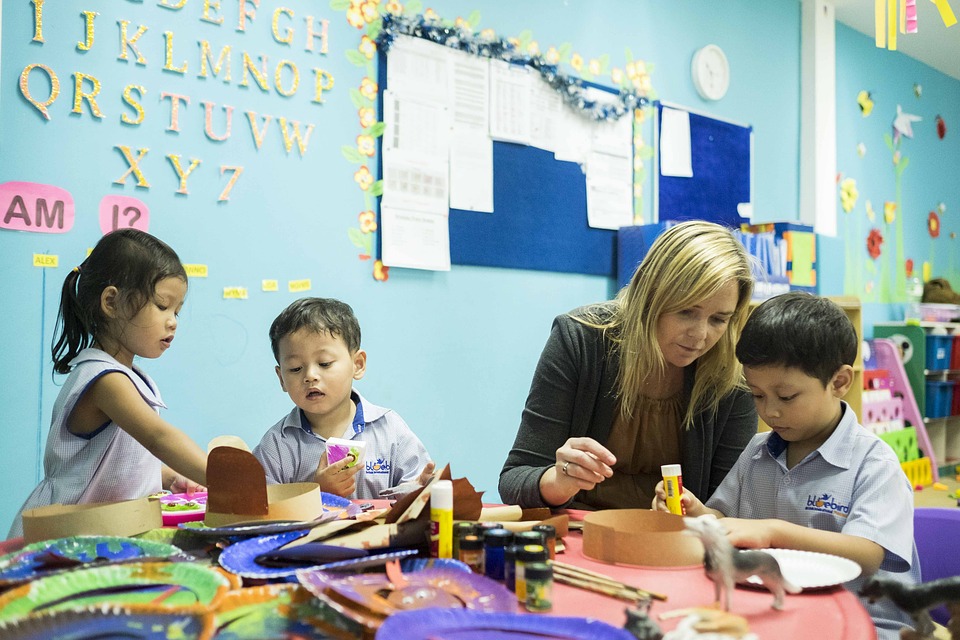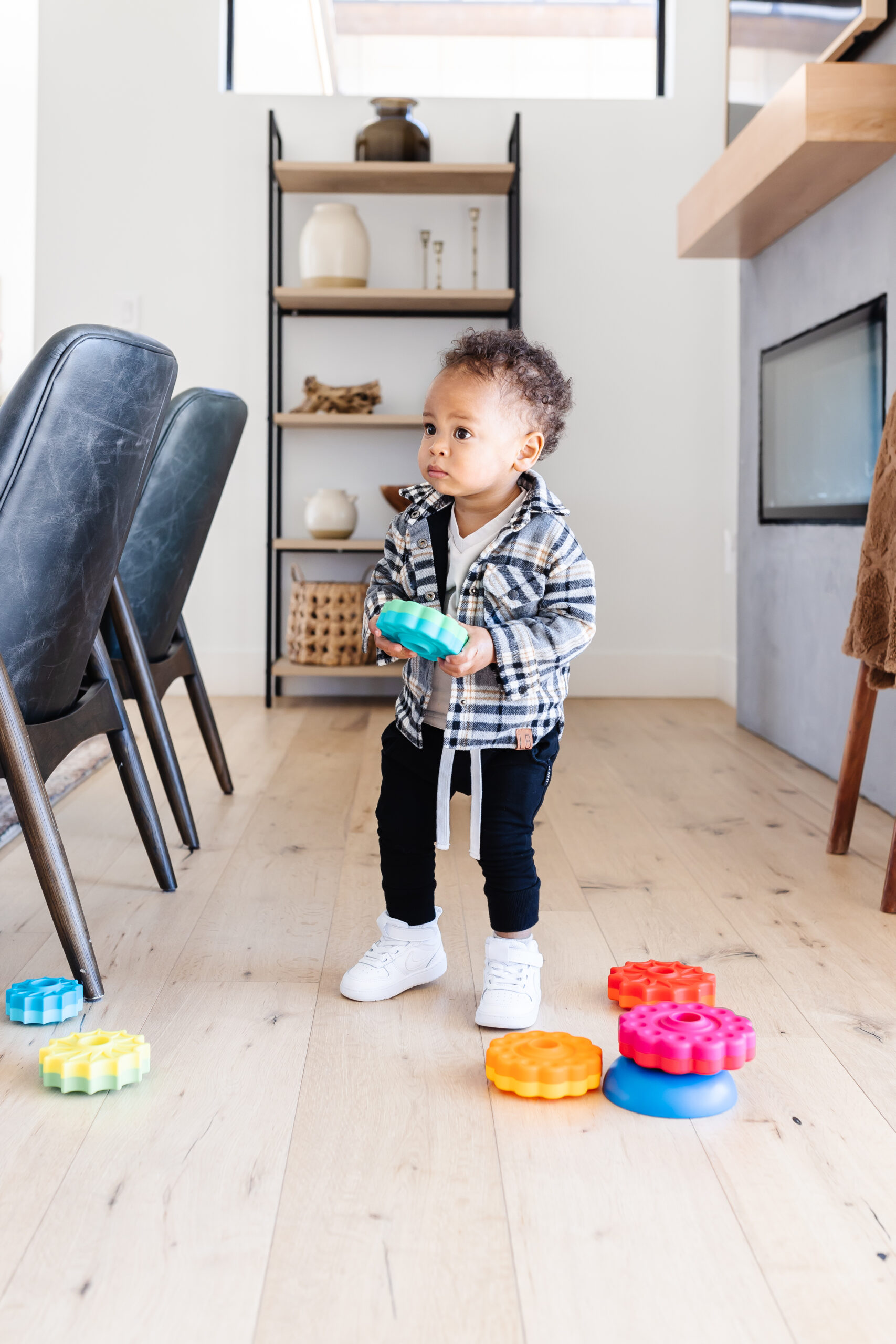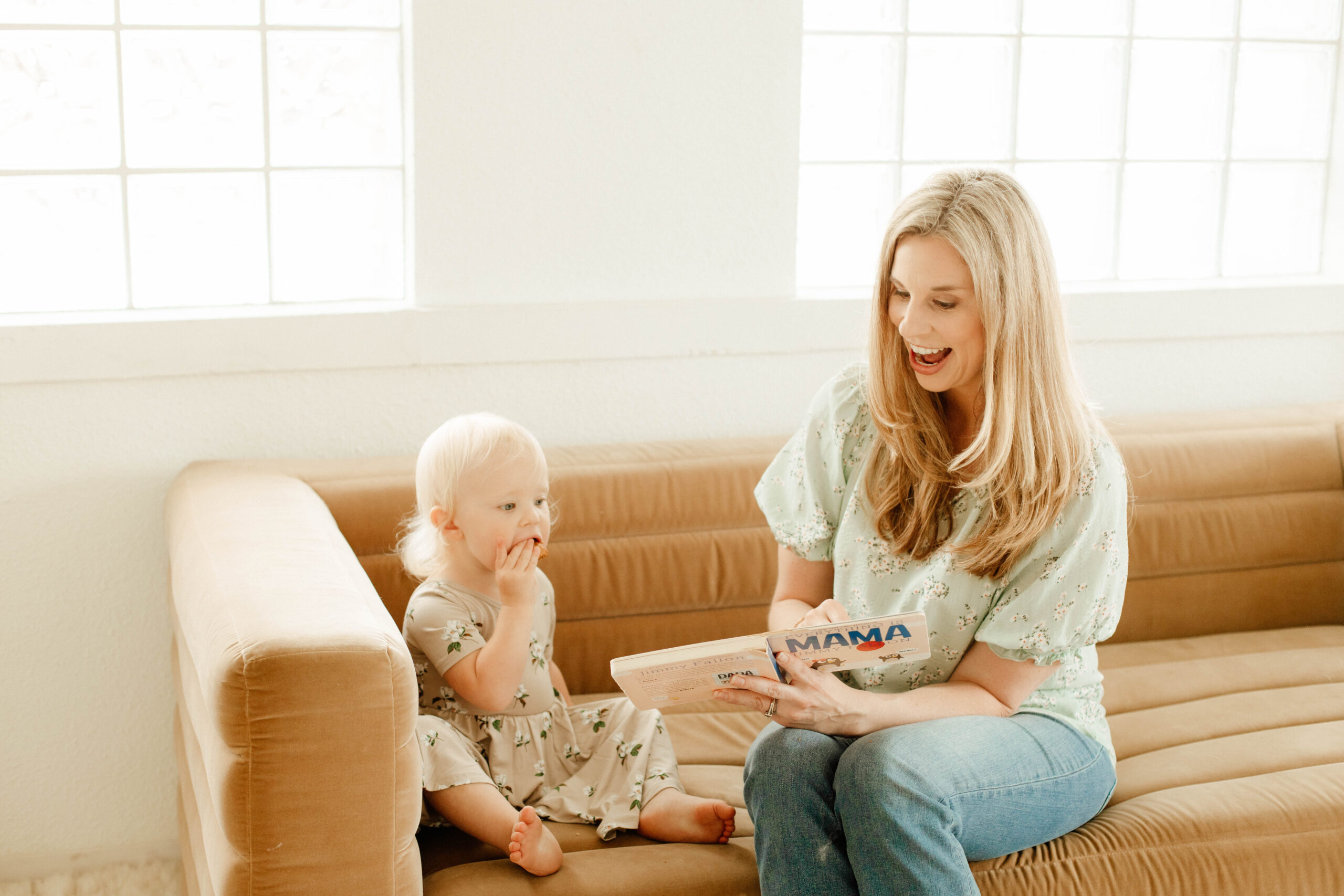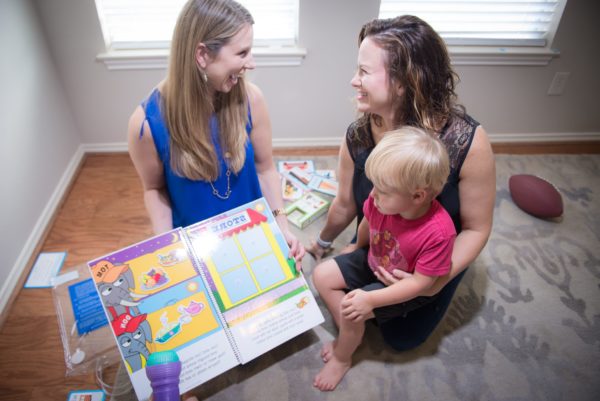
“Use Your Words”
“Use your words” seems to be the slogan for preschoolers these days. Do we want children to use their words? Of course! But this is a skill that needs to be taught. We need to show children how to use their words. In other words, we need to teach them the words to use.
When we tell children to “use their words,” we are assuming they are choosing not to. We are assuming that they have mastered ability the to pause, make a plan, and know what to say in that situation. Moreover, we are assuming they are totally in control when in fact, when we are stressed, our “thinking brain” goes out the window. Not getting a toy may seem insignificant, but situations like that can be highly stressful for a little one. Add to that the frustration of not being able to communicate and we have perfect storm. We can make life a little easier for them by giving them the language and coaching them through the moment.
Problem-solving and social-emotional skills take time to develop.
But how do we teach these skills?
- Model the language: Instead of telling children to “Use your words,” model the words you want them to use. Using language that is specific and simple, tell them what to say. For example, “Can I have it when you’re done?” These end up becoming teaching moments and children will start to internalize the language for solving problems.
- Say it for them how they would say it: Learning language is a process. A little one may not have the words yet to ask. Or they may know what to say, but they could be too stressed to come up with the words in that moment. If a child is getting upset because they want something, instead of saying, “Use your words,” model for them what to say how they would say it (ex: “I want water,” “I want my toy, etc.”)
- Model problem-solving: When we show children how we pause and evaluate possible solutions, we are showing them how we work through problems. Next time you’re at the grocery store and realize they are out of something you need, model your problem-solving strategy out loud. For example, you could say, “They are all out of spiral noodles. That’s okay…We can use spaghetti noodles instead!” These “think alouds” show children that we all encounter problems and we can work through them.
- Involve your child: Let the child be part of the problem-solving process. Using phrases such as “I wonder…?” or “What do you think we should do?” involves them in the solution
- Model pausing: Impulse control can be challenging, even for us! It is especially hard for little ones that are still developing impulse control. Taking a pause before reacting is a life-long skill we can start teaching to young children. By modeling “taking a beat” ourselves, we show children how to pause, make a plan, and respond. Dr. Becky Bailey creator of Conscious Discipline recommends teaching children to STAR: Smile, Take a deep breath And Relax.
- Name the emotion: Developing a vocabulary for feelings/emotions can be a powerful tool for self-regulation. In their book, “Whole-Brain Child,” Dr. Dan Siegel and Dr. Tina Payne Bryson refer to this as the “name it to tame it” strategy. Giving language to big emotions can help calm us down and process what we are experiencing. For example, “I can tell your’re really frustrated!” You can also work on emotion vocabulary outside of the moment. Books are a great way to do this. One of my favorite books for targeting emotions is “The Way I Feel” by Jana Cain.
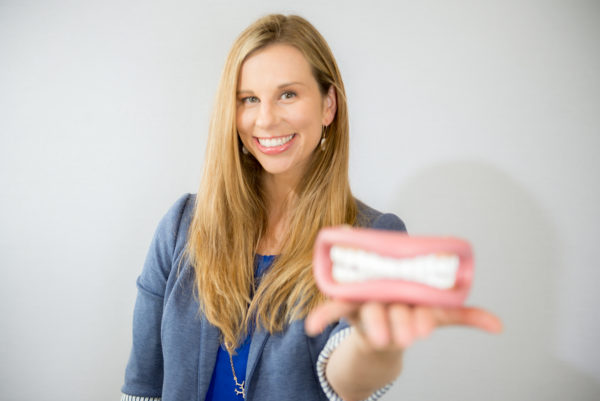 Brooke Andrews, M.A. CCC-SLP is owner of The Speech Dynamic and offers speech therapy in homes and schools across Houston. Brooke specializes in speech and language development to toddlers and preschoolers and provides in-home speech therapy to families in Houston.
Brooke Andrews, M.A. CCC-SLP is owner of The Speech Dynamic and offers speech therapy in homes and schools across Houston. Brooke specializes in speech and language development to toddlers and preschoolers and provides in-home speech therapy to families in Houston.
Resources:
https://consciousdiscipline.com/
Siegel, D. J., & Payne T. P. The Whole Brain Child -12 Revolutionary Strategies to Nurture your’s Child’s Developing Mind. Bantam Books; 2012.
